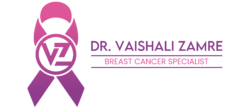Breast cancer is a type of cancer that begins with abnormal cell growth in the breast tissue. It can impact both men and women, but it is more prevalent in women. Early detection and treatment are crucial for better outcomes.Factors linked to an increased risk of breast cancer include a variety of individual and hereditary elements.
Several factors that are linked to Breast Cancer include:
1. Family History of Breast Cancer
Individuals with a family history, parents, or siblings of breast cancer face an elevated risk of developing the disease themselves. This risk is further heightened in cases where relatives have experienced early-onset breast cancer or when multiple family members have been affected.
However, it is crucial to acknowledge that the majority of individuals diagnosed with breast cancer do not have a familial predisposition to the condition.
2. Early Menstruation
If menstruation starts before the age of 12, it can increase the risk of developing breast cancer later in life.
3. Late Menopause
Starting menopause after the age of 55 is associated with an increased likelihood of developing breast cancer. This means that women who experience menopause later in life may have a higher risk of developing this type of cancer.
4. Personal History of Breast Cancer
Individuals who have had cancer in one breast have an increased risk of developing cancer in the other breast. This phenomenon is known as contralateral breast cancer. The risk of contralateral breast cancer varies depending on factors such as age at diagnosis, the type of original cancer, and the treatment received.
Therefore, individuals with a history of breast cancer should remain vigilant with regular screenings and discuss their risk factors with their healthcare provider.
5. Personal History of Certain Breast Conditions
Markers for a higher risk of breast cancer include lobular carcinoma in situ (LCIS) and atypical hyperplasia of the breast. If a breast biopsy has revealed one of these conditions, the risk of breast cancer is heightened.
6. Gender
Women are considerably more likely than men to develop breast cancer. Although everyone is born with some breast tissue, the risk is significantly higher for women.
7. Dense breast tissue
For individuals with dense breasts, characterized by a higher proportion of dense tissue than fatty tissue, detecting breast cancer through mammograms may be more challenging, leading to an increased risk.
8. Alcohol Consumption
Research has shown that regular alcohol consumption can increase the risk of developing breast cancer. This is because alcohol can raise the levels of estrogen and other hormones associated with an elevated risk of breast cancer.
It is essential to be mindful of alcohol consumption and its potential impact on overall health, especially when it comes to the risk of breast cancer.
9. Giving birth at an older age
The risk of breast cancer may increase for women who give birth to their first child after the age of 30. It is essential to stay informed about such factors and make appropriate health decisions in consultation with healthcare professionals.
10. Never Being Pregnant
Women who have never been pregnant have a higher risk of breast cancer compared to women who have had one or more full-term pregnancies. This is because changes in hormone levels during pregnancy may affect the risk of developing breast cancer.
It is important to note that different factors can contribute to an individual’s risk of developing breast cancer, and more research is needed to understand the relationship between pregnancy and breast cancer risk fully.
11. Increasing Age
The risk of breast cancer increases as women get older. It is important for women to be aware of this risk and to regularly undergo screenings and check-ups to detect any signs of breast cancer early.
12. Inherited DNA changes
Specific inherited DNA changes, such as BRCA1 and BRCA2, significantly increase the risk of breast cancer.
13. Menopausal Hormone Therapy
Certain hormone therapy medications used to manage menopausal symptoms, particularly those combining estrogen and progesterone, have been linked to an increased risk of breast cancer.
14. Obesity
People who are obese have a higher chance of getting breast cancer compared to those with a healthy weight. It is believed that excess body fat can lead to increased levels of certain hormones, such as estrogen, which can promote the growth of breast cancer cells.
Additionally, obesity is also linked to chronic low-grade inflammation, which may contribute to the development of cancer. It is important for people with obesity to be aware of this increased risk and to stay in regular contact with healthcare professionals for appropriate monitoring and early detection.
15. Radiation exposure
Radiation treatments to the chest during childhood or young adulthood can increase the risk of developing breast cancer later in life. This is particularly relevant for individuals who may have received such treatments as part of their cancer therapy during childhood or adolescence

